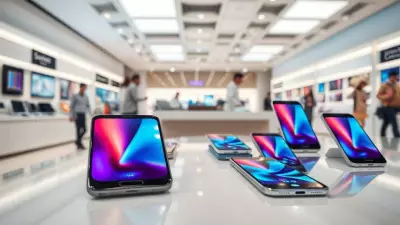
In a move that could reshape the entire music industry, OpenAI is reportedly developing a cutting-edge generative music tool that will put it in direct competition with current market leaders Suno and Udio. This strategic expansion beyond text and image generation marks a significant milestone in the AI revolution.
The Next Frontier in AI Innovation
While OpenAI has dominated headlines with ChatGPT and DALL-E, the company has been quietly working on what could be its most ambitious project yet: an AI-powered music generation platform. Industry insiders confirm that the development is well underway, though OpenAI has remained tight-lipped about specific features and release timelines.
Why This Matters for the Music Industry
The emergence of sophisticated AI music tools represents a paradigm shift in how music is created and consumed. Unlike current platforms that primarily focus on instrumental tracks, OpenAI's solution is expected to offer comprehensive capabilities including:
- Full-song generation with vocals and instrumentation
- Advanced lyric writing and composition
- Multiple genre adaptability
- Professional-grade audio quality
- Seamless integration with existing music production workflows
The Competitive Landscape Heats Up
Currently, Suno and Udio have established themselves as pioneers in the AI music generation space, attracting millions of users with their ability to create original songs from simple text prompts. However, OpenAI's entry into this market could be a game-changer, leveraging their extensive research in generative AI and massive computational resources.
What sets OpenAI apart is their proven track record of scaling AI technologies and their deep expertise in natural language processing, which could enable more intuitive and sophisticated music creation experiences.
Technical Challenges and Opportunities
Developing a reliable music generation tool presents unique technical hurdles that differ significantly from text or image generation. The technology must handle multiple dimensions simultaneously:
- Melodic structure and harmony
- Rhythmic patterns and timing
- Lyrical content and vocal delivery
- Emotional expression and artistic style
- Copyright compliance and originality
What This Means for Musicians and Creators
The arrival of OpenAI in the music AI space could democratize music production even further, making professional-quality composition accessible to everyone. However, it also raises important questions about the future of human creativity and the role of AI in artistic expression.
Industry experts believe that rather than replacing human musicians, these tools will serve as collaborative partners, helping artists overcome creative blocks and explore new musical territories they might not have considered otherwise.
The Road Ahead
While no official launch date has been announced, the development signals OpenAI's commitment to expanding beyond their current domains. The competition between OpenAI, Suno, and Udio is likely to accelerate innovation in the generative music space, potentially leading to breakthroughs that could transform how we think about music creation entirely.
As the AI music war heats up, one thing is certain: the next few years will bring revolutionary changes to the music industry that we're only beginning to imagine.





